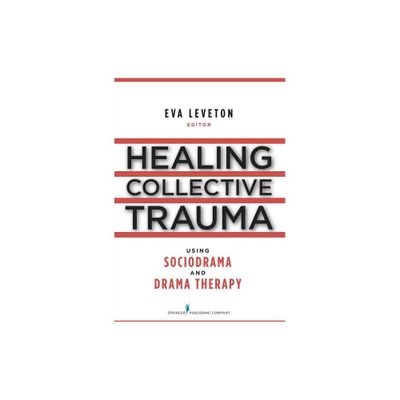Home
Jungian Analysis a World on Fire: At the Nexus of Individual and Collective Trauma
Loading Inventory...
Barnes and Noble
Jungian Analysis a World on Fire: At the Nexus of Individual and Collective Trauma
Current price: $170.00


Barnes and Noble
Jungian Analysis a World on Fire: At the Nexus of Individual and Collective Trauma
Current price: $170.00
Loading Inventory...
Size: Hardcover
*Product Information may vary - to confirm product availability, pricing, and additional information please contact Barnes and Noble
This volume of essays, all authored by practicing Jungian psychoanalysts, examines and illuminates ways of working with individual analytic and therapeutic clients in the context of powerful and current collective forces, in the United States and beyond.
One of Carl Jung’s central achievements was his clear recognition that the psyche is a locus not only of individual and personal experiences but also of social, collective, and even cosmological experiences. This important insight on Jung’s part both opens broad vistas for psychoanalytic practice and poses potential challenges for the psychoanalytic practitioner attempting to understand and aid the individual client amidst the pressure of intense collective energies, especially amidst collective crises. Among the themes treated in this volume are principles of non-violence, environmental activism, feminism, ecological shifts due to the pandemic, the Chingada complex, mass shootings, industrial farming of animals, and death anxiety.
Jungian Analysis in a World on Fire
will be of interest to Jungian, psychoanalytic, and depth-oriented analysts and therapists engaged in how best to work with individual clients in a time of social, political, and environmental crisis. It will also be valuable for scholars interested in understanding the impact of contemporary, collective traumas on individual psychology.
One of Carl Jung’s central achievements was his clear recognition that the psyche is a locus not only of individual and personal experiences but also of social, collective, and even cosmological experiences. This important insight on Jung’s part both opens broad vistas for psychoanalytic practice and poses potential challenges for the psychoanalytic practitioner attempting to understand and aid the individual client amidst the pressure of intense collective energies, especially amidst collective crises. Among the themes treated in this volume are principles of non-violence, environmental activism, feminism, ecological shifts due to the pandemic, the Chingada complex, mass shootings, industrial farming of animals, and death anxiety.
Jungian Analysis in a World on Fire
will be of interest to Jungian, psychoanalytic, and depth-oriented analysts and therapists engaged in how best to work with individual clients in a time of social, political, and environmental crisis. It will also be valuable for scholars interested in understanding the impact of contemporary, collective traumas on individual psychology.


















